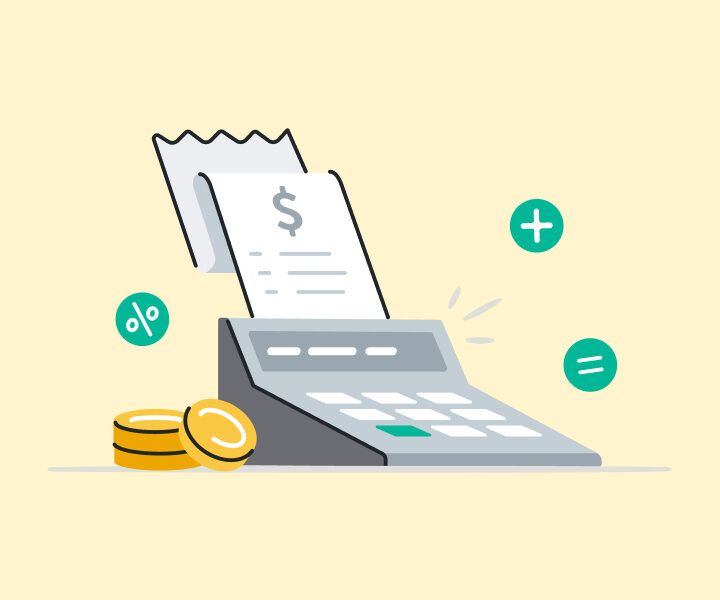With Expert 365, get expert help cleaning up your books for tax time, plus support on sales tax and payroll reporting year-round.
GST/HST Payment Dates for Entrepreneurs
TurboTax Canada
December 20, 2023 | 4 Min Read
Updated for tax year 2025

Being an entrepreneur means you’re the captain of your ship. Taking the helm comes with a boatload of responsibilities—such as collecting taxes and filing your GST return or HST return. The last thing you want is to forget the filing and payment due dates!
Here’s a crash course on when you’re required to file your GST/HST return, the payment deadlines, and what happens if you’ve missed the boat.
Key Takeaways
- Your reporting period (whether annually, quarterly, or monthly) will depend on your annual revenues.
- GST/HST payment deadlines can vary and will depend on your reporting period, with instalment payments also required in some cases.
- Be sure to schedule reminders for filing and payment deadlines, to avoid penalties and interest.
When are the GST/HST filing deadlines for self-employment taxes?
Each business will have its own filing and payment deadlines (also known as payment periods or reporting periods) based on their revenues. Below are the options:
- Monthly
- Quarterly
- Annually: without a December 31 fiscal year-end date
- Annually: with a December 31 fiscal year-end date
Which reporting period applies to your business?
If your business has an annual revenue of:
- Less than $1,500,000, your assigned reporting period is annually. You also have the option of selecting a more frequent reporting period, such as quarterly or monthly.
- Between $1,500,000 and $6,000,000, your assigned reporting period is quarterly. You also have the option of reporting monthly.
- More than $6,000,000, you’re required to report monthly.
How do I file my return?
You can submit your GST/HST return using GST/HST NETFILE by selecting the “File a return” option in the CRA’s My Business Account.
Your GST/HST return (Form GST34-2) will show your due date at the top of the form. Keep in mind that even if you have no transactions and no net tax to submit, you still need to file a GST/HST return. If the due date lands on a weekend (Saturday or Sunday) or a statutory holiday, then your payment will be considered on time if it is received by the following business day.
GST/HST filing and payment deadlines
The following tables illustrate the GST/HST filing and payment deadlines for the different reporting periods.
Monthly: You have one month after your reporting period ends to file your GST/HST return and remit your taxes.Below are examples of the deadlines for the monthly reporting periods from January to March. The remainder of the months will follow the same timeline.
| Reporting Periods | Filing and Payment Deadlines |
| January 1 to January 31 | February 28 (or February 29, for a leap year) |
| February 1 to February 28 (or February 29, for a leap year) | March 30 |
| March 1 to March 31 | April 30 |
Quarterly:You have one month after your reporting period ends to file your GST/HST return and remit your taxes.
| Reporting Periods | Filing and Payment Deadlines |
| January 1 to March 31 | April 30 |
| April 1 to June 30 | July 31 |
| July 1 to September 30 | October 31 |
| October 1 to December 31 | January 31 |
Annually (without a December 31 fiscal year-end date): You have three months after your fiscal year ends to file your GST/HST return and remit your taxes.
| Reporting Periods | Filing and Payment Deadlines |
| June 1 to May 31 | August 31 |
Annually (with a December 31 fiscal year-end date): You have until June 15 after your reporting period ends to file your GST/HST return. However, you will need to remit your taxes by April 30.
| Reporting Periods | Filing and Payment Deadlines |
| January 1 to December 31 | Filing: June 15 Payment: April 30 |
Should your business make instalment payments?
Another important rule to know is that if your business files annually and your net tax for your previous fiscal year is $3,000 or higher, you are required to pay quarterly instalments in the current fiscal year (even though you may have rebates that will reduce your taxes to less than $3,000). You may incur penalties and interest if you don’t remit your quarterly instalments.
To view your instalment due dates online, you can use the instalment payment calculator service at the CRA’S My Business Account.
What happens if you pay less than the actual amount you owe?
If you pay less than the amount you should’ve paid, the CRA will charge instalment interest on the difference. So, it’s important to be as accurate as possible when estimating your instalment payments for your current year.
For example, if you estimate that you owe $4,000 in taxes this year, each quarter you’ll pay $1,000. However, if at the end of the year, you end up owing $4,500, then the CRA will charge you interest on the balance of $500 ($4,500 – $4,000 = $500).
Will your refunds be put on hold if you file your GST/HST late?
If you don’t file your taxes, any GST/HST refund or rebate that you’re supposed to receive will be put on hold until you’ve filed all your tax returns. If you’re a sole proprietor or partnership, your personal income tax refund will also be put on hold.
Plus, the CRA can charge you interest and penalties for any amounts or returns not submitted by the deadline (all the more reason to file on time!). Remember, if you’re closing a GST/HST account, you still need to file a final GST/HST return.
Mark your calendar for filing and payment deadlines
Now you know what to expect when filing your GST/HST return and the importance of submitting your payments on time. For smooth sailing throughout the course of the year, create reminders in your calendar so you don’t forget key dates. TurboTax also can offer expert year-round help with your corporate GST/HST questions and returns, as well as other bookkeeping help and payroll questions.
Your self-employment tax situation, covered
Whether you're a freelancer, side-gigger, independent contractor, or just have multiple sources of income, TurboTax can handle your return.
Get StartedWhen are the GST/HST filing deadlines for self-employment taxes?
Which reporting period applies to your business?
GST/HST filing and payment deadlines
Should your business make instalment payments?
What happens if you pay less than the actual amount you owe?
Will your refunds be put on hold if you file your GST/HST late?
Related articles

© 1997-2024 Intuit, Inc. All rights reserved. Intuit, QuickBooks, QB, TurboTax, Profile, and Mint are registered trademarks of Intuit Inc. Terms and conditions, features, support, pricing, and service options subject to change without notice.
Copyright © Intuit Canada ULC, 2024. All rights reserved.
The views expressed on this site are intended to provide generalized financial information designed to educate a broad segment of the public; it does not give personalized tax, investment, legal, or other business and professional advice. Before taking any action, you should always seek the assistance of a professional who knows your particular situation for advice on taxes, your investments, the law, or any other business and professional matters that affect you and/or your business.









